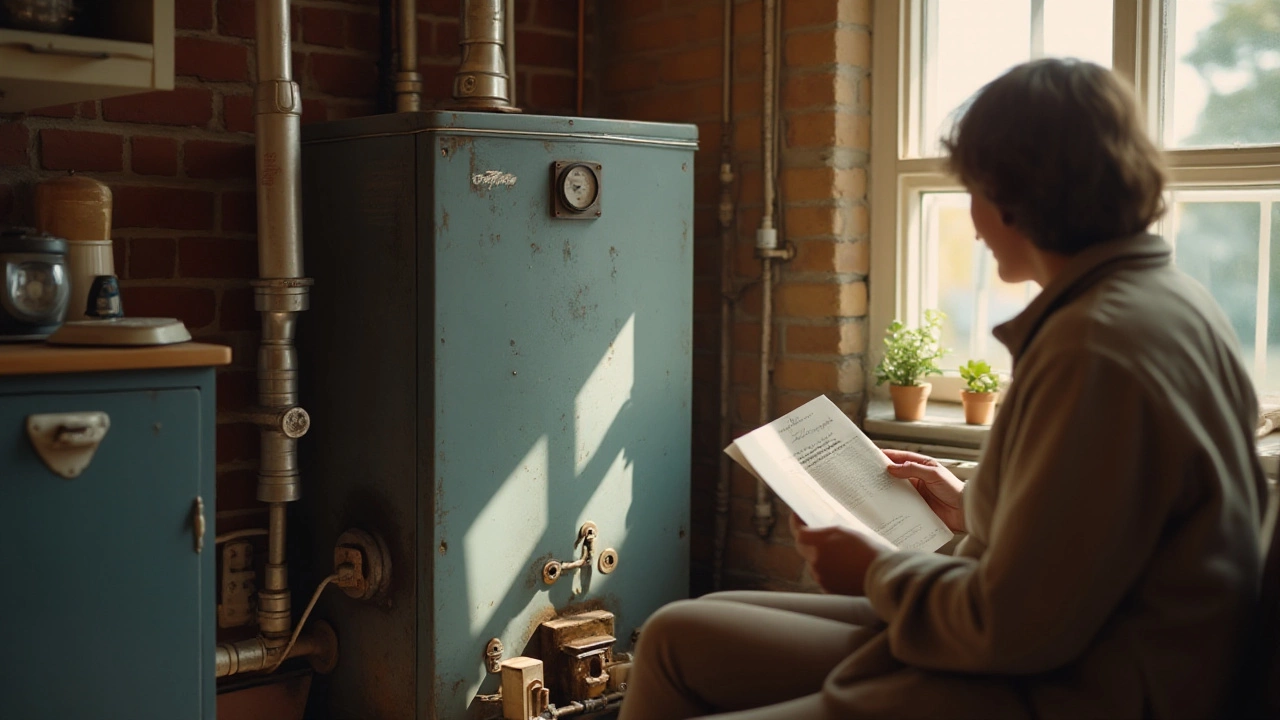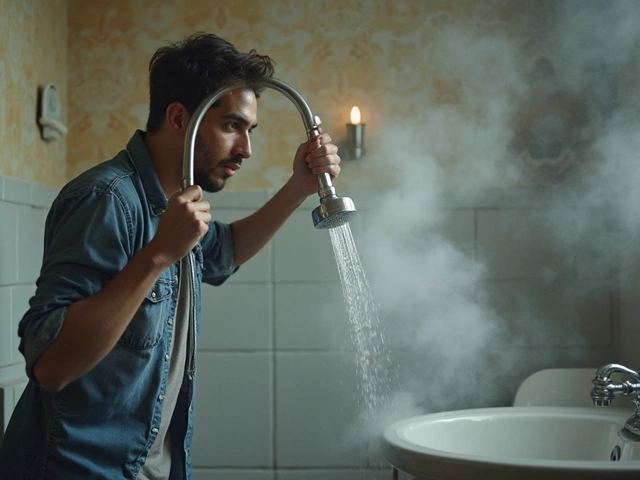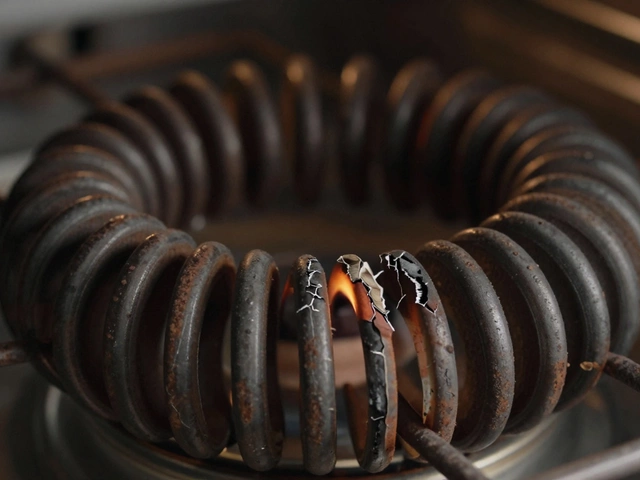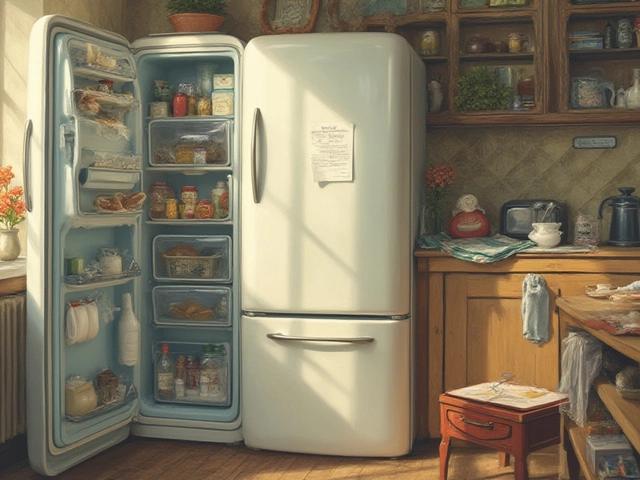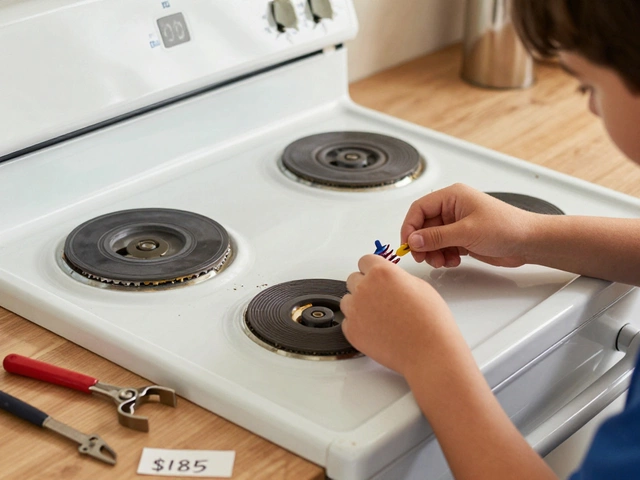Households often depend on their trusty boilers to keep them warm and comfortable, especially as we approach the chilly embrace of winter. But when your boiler has been ticking away for forty years, you might start to question just how safe it is to continue relying on this aging giant.
While a boiler, with proper care, can last for years and years, reaching the four-decade mark brings along its own set of challenges and concerns. Older models might not only be less efficient but could also pose safety threats if neglected. As a guardian of home coziness and safety, understanding the limitations and maintenance needs of a vintage boiler becomes essential.
So, how do you know if your old reliable boiler is still up to the task? And what steps should you take to maintain a safe and efficient heating environment? Let's dive deeper into this topic, shuffling through tips, known issues, and expert advice to ensure that age-old boiler doesn’t hold any unwelcome surprises.
- Understanding Boiler Lifespan
- Risks of an Aging Boiler
- Signs Your Boiler Needs Replacing
- Safety Tips for Maintenance
- When to Call a Professional
Understanding Boiler Lifespan
When it comes to the longevity of old boilers, several factors come into play. Typically, a boiler's lifespan is around 10 to 15 years, but with excellent maintenance, some can last up to 30 years. However, reaching the grand age of 40 is rare and often signals it's time to start contemplating replacement. The longevity largely depends on how often the boiler is serviced, the quality of installation, and the usage it sees each year. Older models, while built with robust materials, might not match up to modern standards of efficiency and safety, potentially increasing running costs significantly.
Several signs indicate when a boiler is nearing its final days. Increased frequency of breakdowns is usually a tell-tale sign. If you find yourself calling a boiler repair professional more often than usual, it's a signal that the system is struggling to cope with your heating demands. Pay attention to unusual noises like banging or clunking, as these often point to internal problems. Rust and corrosion on the outer surface also compromise the boiler's structural integrity. Safety should always be a priority; a compromised boiler could lead to carbon monoxide leaks, a dangerous situation for any household.
"Replacing a boiler may seem costly, but when compared to the efficiency gains and peace of mind, it often pays off in the long run," says Jane Smith, a renowned HVAC expert.Regular maintenance plays a crucial role in extending the life of your boiler. Scheduling annual check-ups to clean the internal components and check the pressure valves can ward off many potential issues. Technicians will test for leaks and ensure that all safety measures are up to standard. Such maintenance isn't just about preventing problems but also about catching them while they're still small and manageable.
Homeowners often wonder if their vintage boiler is still cost-effective. A significant drop in energy efficiency usually marks old age. Modern boilers are designed to comply with strict energy regulations, saving money on bills and reducing environmental impact. If you've noticed your energy expenses creeping up unexpectedly, it might be due to your old boiler struggling to perform efficiently. Efficiency ratings drop over time, making replacement an economical decision rather than just a necessity.
| Boiler Age | Risk Level | Efficiency |
|---|---|---|
| 0-10 years | Low | High |
| 10-20 years | Moderate | Medium |
| 20-30 years | High | Low |
| 30-40 years | Very High | Very Low |
In summary, while a 40-year-old boiler might still function, its efficiency, safety, and reliability are significantly compromised. Evaluating the maintenance history and consulting with professionals can help decide the best course of action. Upgrading to a new model may not just mollify potential risks but also enhance heating efficiency and comfort within your home.
Risks of an Aging Boiler
A boiler that has reached or exceeded the 40-year mark can pose several old boilers related risks to your home. These risks are not just about efficiency but touch on safety, operational reliability, and your energy budget. Let's dive into what makes an aging boiler a potential hazard. At the top of the list is the increased chance of leaks. Over time, the constant heating and circulation of water can lead to corrosion, damaging inner components. This corrosion isn’t always visible until a significant problem arises, such as a leak, which can trigger water damage to your home, compromising walls, ceilings, and flooring if it's severe.
Apart from leaks, there’s also the horror of carbon monoxide production. Aged boiler safety concerns are critical because improper combustion processes in old units might lead to carbon monoxide leaks. This colorless, odorless gas is notoriously dangerous for inhabitants if it builds up in living spaces. Modern boilers usually come equipped with fail-safes for this, but older ones might not be so trustworthy. Hence, having a carbon monoxide detector near the boiler isn't an option—it's a necessity.
Older boilers can also be a financial drain due to inefficiency. As boilers age, their ability to use energy efficiently declines substantially, which translates to heftier bills. A boiler that's been in service for four decades won't perform as well as its contemporary cousins, which often achieve over 90% efficiency. In contrast, older models hover well below that mark, needing more fuel for the same level of heating. This inefficiency is compounded by outdated technology that can’t take advantage of today’s energy-saving advancements.
The reliability of a 40-year-old boiler is also in question. Frequent breakdowns can become the norm as internal parts wear out. You might find yourself calling in for repairs more often, which adds up over time. Instead of dealing with sporadic issues and minor repairs, the prospect of needing a complete replacement becomes likely. Honestly, with frequent failures, replacing may begin to seem like a more economical option in the long run.
"The older your system gets, the more crucial it becomes to monitor for signs of trouble," explains a senior heating engineer at a reputable HVAC company. "An inspection could easily prevent a disaster much larger than the cost of a new system."
Lastly, environmental concerns come into play. Old boilers that run on oil or older forms of natural gas aren't just inefficient—they're a breath of pollutants compared to newer models. For homeowners looking to reduce their carbon footprint, the decision might weigh heavily on the side of securing a more sustainable heating solution. Hence, while the boiler might still rumble along, its impact on the environment may be larger than anticipated.
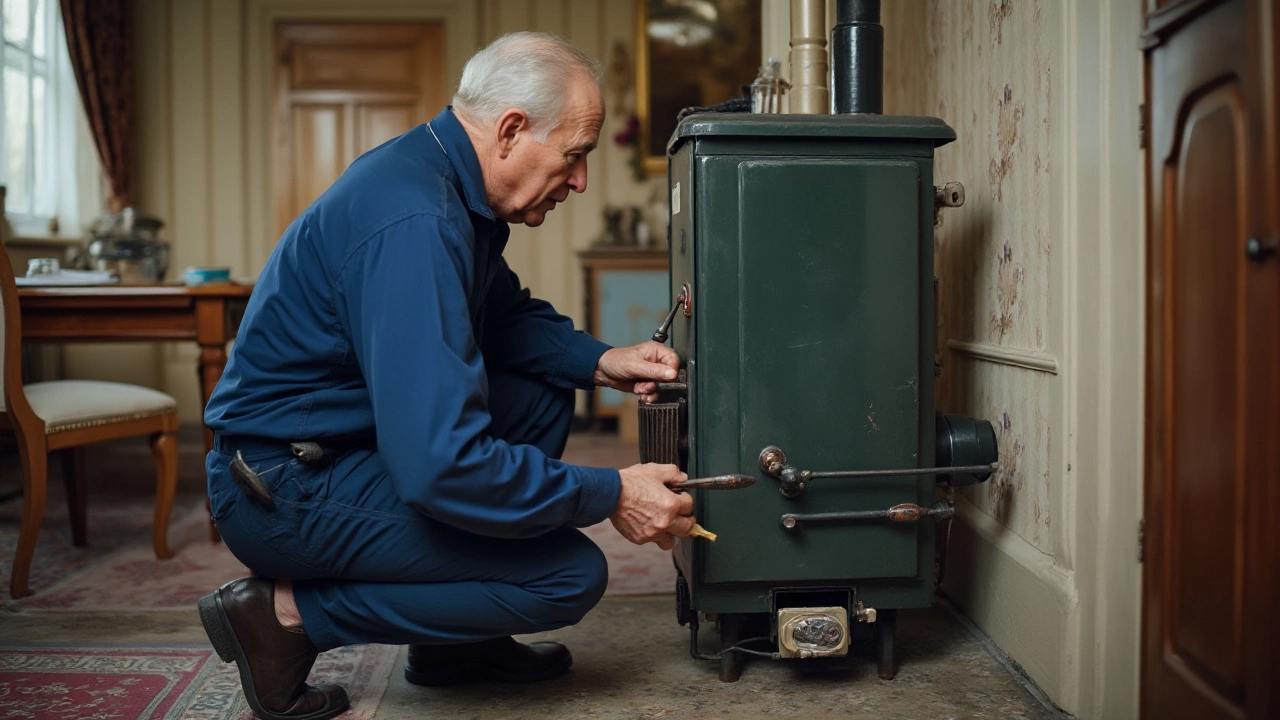
Signs Your Boiler Needs Replacing
As your boiler inches closer to its golden years, there are certain telltale signs it might be reaching the end of its operational life. Understanding these signals is crucial in preventing sudden breakdowns or potential hazards. One of the most common indicators is inefficiency in heating. If your once-dependable appliance now struggles to maintain a comfortable temperature or requires more time and energy to heat the space, it might be giving away that time has finally caught up with it. An increase in energy bills can also accompany this inefficiency, as older boilers consume more power to deliver the same heat.
Strange noises are another sign your boiler might be whispering its goodbyes. While it's not uncommon for boilers to make some noise during operation, alarming sounds like bangs, clunks, or whirrs suggest mechanical issues that should not be ignored. These could stem from various issues such as airlocks, failing components, or sediment build-up — all indicative of a system that may soon need replacing.
Frequent repairs are a sure sign your boiler may be nearing its end. If you find you're repeatedly calling in professionals to fix recurring issues such as leaks, pressure drops, or pilot light failures, it might be more cost-effective to invest in a new model. The costs of constant repairs can add up quickly and can sometimes even exceed the price of a new, efficient unit in the long run.
According to the U.S. Department of Energy, "If your water heater is over 10 years old, it may be time to consider replacing it to improve efficiency and safety." Although this statement is about water heaters, similar logic applies to boilers given their comparable life expectancies and operational characteristics.
Uneven heat distribution can also hint at a boiler that needs attention. If some rooms are chilly while others are warm, or if the heater seemingly struggles to create uniform heat throughout your home, these can be symptoms of a failing boiler. Addressing these issues can help determine whether adjustments can save your existing unit or if it’s time to replace it entirely.
Finally, a yellow or flickering pilot light instead of a crisp blue flame indicates a problem that requires immediate attention, as it could be the sign of a carbon monoxide leak. This is a severe safety hazard that should not be taken lightly and warrants professional inspection and likely replacement. Safety first is always a prudent approach when dealing with potentially aged and faulty equipment.
Safety Tips for Maintenance
As a homeowner, taking care of an old boiler is much like maintaining an old car — it's all about regular check-ups and careful attention to details. A 40-year-old boiler can still do its job well if you maintain it properly. First and foremost, remember to schedule regular inspections. Boilers like these should be checked by a professional at least once a year to ensure they're running safely and efficiently. During these inspections, a technician will look for signs of wear and tear, check the boiler’s pressure, and make sure safety controls are properly set. These inspections can catch small problems that, if left unchecked, might lead to bigger, more expensive repairs or potentially dangerous situations.
Another key tip is to keep an eye on the boiler’s pressure. Low pressure can lead to inefficient operation, while high pressure might cause leaks or lead to system damage. It’s important to know your boiler’s ideal pressure level and to regularly check to ensure it stays in that range. Consulting the boiler's manual can provide guidance on what the correct pressure should be. Additionally, look out for uncommon noises like banging or gurgling, which might indicate trapped air or other issues. Unexpected sounds often mean there’s something amiss, and addressing these early can prevent costly damages down the road.
Cleaning the area around the boiler is another simple but often overlooked task. Dust and debris can accumulate and potentially interfere with the boiler's performance. Ensure there’s good ventilation in the room where the boiler is installed; this will help the unit operate efficiently and safely. Another clever tip is to bleed your radiators to ensure there's no trapped air preventing your heating system from working properly. Regularly doing this can also extend the life of your boiler. And don’t forget to check for any signs of corrosion or leaks, as these can be indicative of a more serious underlying problem that requires professional attention.
Professional Assistance
While taking care of daily and yearly checks is important, know when to seek professional help. Even if you are handy around the house, boilers are complex machines, and a professional will have the skills necessary to ensure everything is working as it should. Feeling unsure about something? Reach out to the professionals and get their advice. As one expert notes,
“Regular maintenance by a trained technician can greatly extend the life of your boiler and keep your family safe.”These experts can also advise on newer technologies or more efficient models if your old boiler starts showing signs of retirement. If you find that your heating bills are steadily climbing year on year, this might indicate your boiler is using more energy than it should. This isn’t just a monetary concern, but also a safety one – underscores the need for maintenance or replacement.
By following these safety tips and staying vigilant, you'll help ensure that your trusty old boiler continues to serve your home safely and efficiently for as long as possible. Remember, while age might bring challenges, it doesn't have to mean an end to reliable and safe home heating.
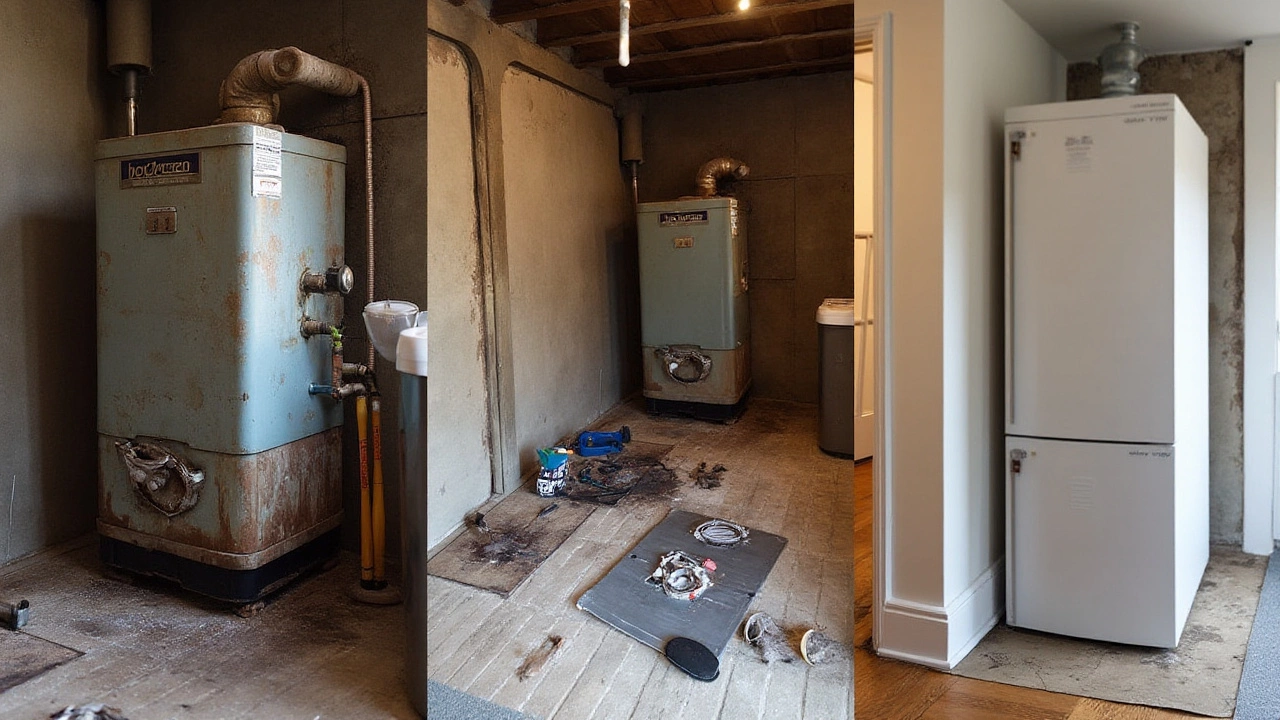
When to Call a Professional
Understanding when to enlist the help of a professional can mean the difference between a cozy home and a dreaded emergency. As your boiler reaches its 40-year milestone, regular inspection by an experienced technician isn't just a good idea; it's essential. Even if you haven't noticed any alarming signs yet, older boilers merit a closer look, as age can stealthily take its toll, unnoticed by the untrained eye.
Older boilers, such as those nearing the four-decade mark, often exhibit unique quirks and complications that can be professionally assessed. An inspection isn't merely about checking current faults. Professionals can foresee potential future failures that a homeowner might overlook. This proactive approach can save both money and frustration in the long run. One recognized sign that indicates a need for professional insight is the gradual reduction of efficiency, including longer times to heat up or inconsistent heating. It's normal for an old boiler to be less efficient, but a steep drop suggests a deeper issue.
In cases where unexplained noises emanate from the boiler, like banging or whistling, a technician’s intervention becomes imperative. These sounds aren't just jarring; they can indicate serious internal issues such as sediment buildup or failing components. Catching these problems early not only extends the life of the system but also prevents new issues from developing. Moreover, the presence of unusual odors, especially if there's a hint of gas, is a red flag. Safety should always come first. A professional can identify leaks and rectify them, preventing potential hazards.
Consider how often your boiler requires repairs. If breakdowns become frequent and one problem follows another, your system might be beyond its prime, necessitating professional advice on possible replacement. While it might seem like an added expense, consulting an expert saves money in the future by avoiding costly emergency repairs. As Henry Thompson, a seasoned boiler technician, once remarked,
'A stitch in time saves nine – a regular check-up might seem trivial, but it can save a customer from a world of pain when winter hits hardest.'
Indeed, staying on top of minor repairs through trusted professional help ensures small hiccups do not escalate into major concerns. It is worthwhile to establish a regular maintenance routine. This can be as simple as an annual service. Such a routine lets the professionals evaluate the condition of the boiler, lubricate necessary parts, and address minor issues on the spot, ensuring continued reliability for another year.
Finally, consider the age factor. As statistics show, boiler efficiency and safety significantly decrease after 15 years. A 40-year-old model has already surpassed typical expectations, which might warrant a serious conversation with a professional about the potential benefits of investing in a new, more efficient model. Boiler safety shouldn't be taken lightly, and a conversation with an expert could steer you toward better, safer alternatives without the fear of unexpected breakdowns.

